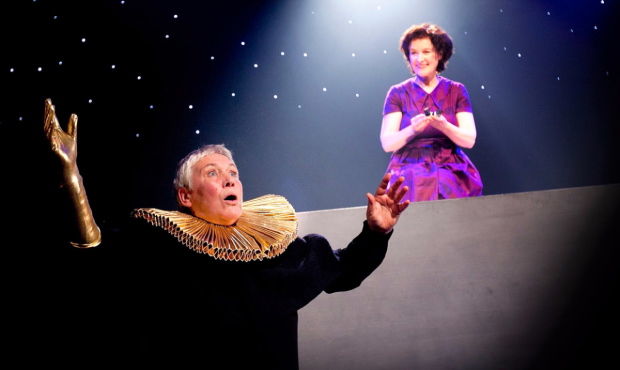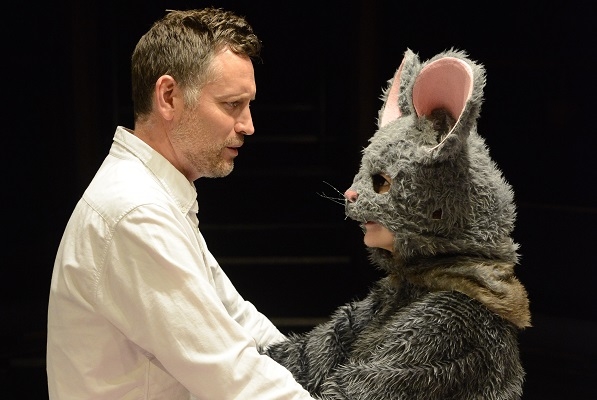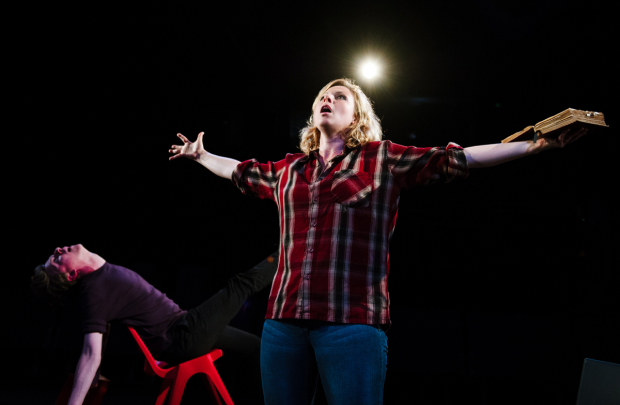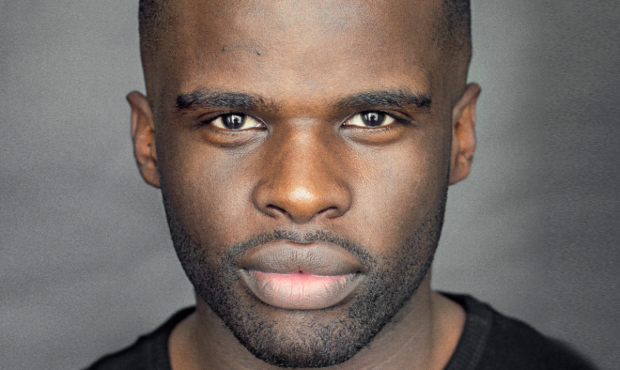Review: The Secret Keeper (Ovalhouse)

© Sheila Burnett
Secrets have split personalities. As much as they want to keep themselves under wraps, they also long to be let out into the open. It’s what makes keeping a secret feel like such a burden. At some level, every secret wants to be spilled. The bigger the secret, the more it wants blurting out.
Angela Clerkin’s grown-up fairytale has that tension at its heart. She takes us to a town where secrets are stacking up and waits for the dam of silence to burst. A picaresque in the same vein as Angela Carter or Neil Gaiman’s novels, The Secret Keeper spins a simple, even childish, story and lets us sift out the socio-political resonance.
Clerkin’s Secret Keeper is a young girl. Having long been suspected of his brother’s murder, a dollmaker offloads his deepest, darkest secret onto his only daughter. His deep-set depression lifts straight away. He floats onto his tiptoes and almost explodes with relief. Even the stars seem to surge with light. When his miserable wife tries the same thing, she too fizzes with giddiness at her newfound freedom, and before long, the whole town’s flocking to confide – be it adultery, conspiracy or worse.
Every secret takes the physical form of a magpie, some big and some small. As the Secret Keeper, perched on a raised black platform like a priest or an idol, Clerkin soon finds herself surrounded by birds. The mass of secrecy starts to weigh her down, until even the secrets themselves – hooded figures with black beaks and white gloves – debate coming out for her sake. The question is whether the town could take that.
It’s a delicate allegory, very finely balanced. Clerkin conveys a culture of corruption (or, less maliciously, a corrupt culture) in which everyone agrees to overlook everyone else’s wrongs. It’s a mutually beneficial situation, and the story makes it clear why clean-up operations meet such resistance. When secrets emerge, there’s no stopping them. No-one escapes. It explains exactly why whistleblowers can seem such a threat, and why opinion might tilt on an organisation like Wikileaks. Might there be limits to honesty and openness, just as there are limits to privacy?
At one stage, in a bid to profit from their daughter, the dollmaker and his wife dress her up in a sparkly cloak with big plastic ears. She looks, momentarily, like an alien Buddha and, suddenly, the story seems to take aim at religion – specifically, the confessionals and corruption of Catholicism. Elsewhere, there are nods to austerity and debt wrapped up in the way we pass problems on.
However, it's worth distinguishing between story and show. Clerkin’s found a deft and original core narrative – the girl bogged down by confidence – but the plot fleshing it out is still rather stock. The secrets in question don’t quite measure up – too standard to scintillate, to straightforward to surprise – and Lucy J Skilbeck’s staging slips up as a result. It sticks too closely to the tone of children’s theatre, which risks patronising the adult audience it's addressing. Niall Ashdown and Anne Odeke are lively enough as the secret keeper’s parents, but they’ve too little to work with – neither all-out silliness, nor targeted smarts. Clerkin’s story begins to feel thin, way over-stretched at close to two hours. At half the length, it would be twice as good.
The Secret Keeper runs at Ovalhouse until 21 October, then tours until 10 November.













